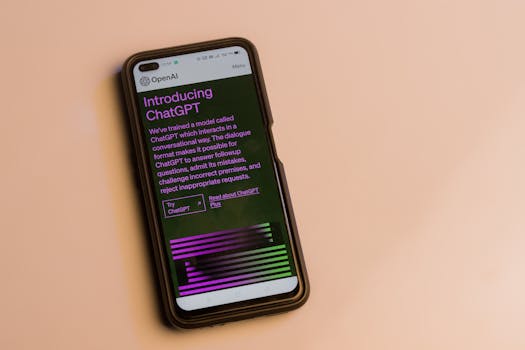Skills and certifications
Certification Courses in Highest Demand: Skills for a Modern Workforce
Explore the most in-demand online certification courses across tech, healthcare, business, and more. Learn practical steps to gain skills, boost job prospects, and stay ahead in your career.
Advertisement
It’s easy to feel lost in a world flooded with options for learning online. Many wonder if pursuing yet another course will genuinely lead to real, tangible opportunities. The good news? The right certification courses do make a clear difference.
Employers increasingly look for up-to-date digital skills, fast-track credentials, and measurable expertise. Certification courses, especially those tailored to industry needs, offer practical pathways for career growth and job market relevance. Choosing carefully saves time and ensures effective preparation.
Explore this guide for actionable insight into which online certification courses get noticed, why they matter, and exactly how they can be used as stepping stones in various industries. Let’s dive in.
Tech Certifications Build Measurable Digital Value
Gaining technical certifications provides an instant signal of hands-on expertise to employers. Taking a certification course in cloud computing, cybersecurity, or network management equips you with current, in-demand skills.
For instance, IT professionals often say, “I need the CompTIA Security+ to work in government IT roles.” Course completion and exam success show readiness for those opportunities.
Practical Networking Credentials Boost Job Access
Candidates who show credentials like Cisco’s CCNA earn job interviews for network technician and administrator roles. The CCNA includes learning real commands, troubleshooting networks, and configuring devices—skills that hiring managers explicitly ask about in technical screenings.
“Can you set up VLANs and explain routing protocols?” is a common interview question. After completing these certification courses, you’ll be ready to answer with practical examples and confidence.
Include the keyword ‘certification courses’ when searching for roles: type ‘preferred: CCNA or CompTIA A+’ on job boards to filter to jobs that value your investment.
Cloud Skills Trainings Open Growth Paths
The surge in demand for AWS, Azure, and Google Cloud-trained talent proves that cloud certification courses pay off. Each course follows official vendor platforms, mixing assessment labs and scenario challenges.
For example, in a group chat, a peer might say, “I passed the AWS Certified Solutions Architect last week—now recruiters call about remote roles.” These conversations show how quickly opportunities follow credible results.
Bookmark vendor pages for quarterly updates. Certification courses shift with the industry, so schedule reviews of syllabus changes and refreshers every six months for ongoing relevance.
Comparing Top Tech Certification Courses
| Certification | Typical Duration | Skills Focus | What to Do Next |
|---|---|---|---|
| CompTIA Security+ | 3 months | Cybersecurity, Risk Management | Prepare with practice exams, schedule test date |
| Cisco CCNA | 4 months | Networking, Routing/Switching | Complete labs; update LinkedIn profile |
| AWS Certified Solutions Architect | 4-5 months | Cloud Architecture, Deployment | Join cloud communities for project networking |
| Google IT Support | 6 months | Troubleshooting, OS Management | Apply for entry-level IT help desk positions |
| Microsoft Azure Fundamentals | 2 months | Cloud Basics, Data Services | Share badge with professional contacts |
Data and Analytics Credentials Enable Career Reinvention
Completing certification courses in data analysis or business intelligence immediately signals preparedness for roles where decision-making is data driven. Employers seek candidates who can navigate Excel, SQL, and visualization tools fluently.
After finishing these certification courses, participants often report, “I built a dashboard in Tableau during my study—my boss noticed and let me present insights to the team.” That’s the edge that opens doors.
Building a Professional Portfolio Through Data Certification
Creating mini-projects proves your skills beyond test scores. Start with simple datasets—sports stats, survey responses—or replicate popular data analysis challenges. Certification courses in Power BI, Tableau, or Google Data Analytics include scenario-based capstone projects.
Mention these finished projects in interviews: “During my certification course, I built a sales dashboard with drilldown features for region, product, and date, which matched the demo in your job posting.”
- Find a dataset relevant to your field and plan one insight to present visually; this shows problem-solving initiative.
- Export your best visualization; include it in your LinkedIn profile portfolio or resume attachments for instant impact.
- Reference your certification courses on public platforms to connect with recruiters looking for verified skills.
- Discuss successes with peers: “I quantified website engagement before and after new features by applying my certification training.”
- Set a calendar reminder to routinely update your projects every quarter as you gain new knowledge from different certification courses.
Expanding your technical toolkit keeps you adaptable as industry needs shift. Data proficiency is a portable asset—and completing the right certification courses makes growth visible and actionable.
Checklist for Showcasing Analytic Skills
When pitching yourself for data-driven roles, use a brief checklist:
- Cite at least one completed certification course on your resume, not just “data analysis” as a skill.
- Phrase project results with clarity: “Increased reporting speed by 40 percent using Power BI knowledge from certification courses.”
- Share links to your dashboards to demonstrate work in action.
- Describe how you picked the right visualization for each goal, showing critical thinking beyond basic tool use.
- Prepare a quick walkthrough script, as recruiters ask for short demos in interviews. “Here’s how I built this metrics dashboard, step by step…”
Ready your portfolio and highlight it in every networking or interview scenario. These details distinguish you from generic applicants who just list a skill without proof.
Healthcare and Wellness Certifications Expand Reach
Certification courses in healthcare fields enable candidates to participate in medical support, administration, and digital health transformation projects. Registrations in medical coding, billing, and health IT certification courses have steadily increased over the past year according to several education platforms.
One instructor recently told students, “Every certification course you finish adds another credential for telehealth jobs or remote support work.” Staying updated is critical here as regulations and technologies evolve quickly in this sector.
Medical Coding Paths Lead to Entry-Level Roles
Medical office staff frequently report, “With my coding certification, I could immediately apply for remote claims review work.” National exams like the CPC (Certified Professional Coder) test real-world tasks using sample claim forms, databases, and scenario questions, preparing candidates for immediate job-ready assignments.
Joining online communities for medical coders helps prepare for changes. Attending webinars or reading current cases turns abstract guidelines into daily routines—a practice many successful professionals credit for their fast track to relevance.
When hiring for these roles, managers say, “We want to see which certification courses you’ve completed and how you apply that learning—show us your workflow.” List sequence steps on your resume: “Verified ICD-10 codes, matched claims to billing cycles, resolved errors.” Each task demonstrates mastery gained through targeted certification courses.
Behavioral Health Opportunities Through Specialized Credentials
Mental health and wellness coaching require empathy, training, and clear protocol. Certification courses for mental health technicians or wellness coaches include ethics, client interaction scripts, and mandatory reporting rules—translating theory to ethical, daily practices.
Colleagues frequently share scripts during group training: “Start with, ‘Can you walk me through how you’re feeling this week?'”—practices learned directly in regulatory-aligned certification courses. Completing these credentials shows you can follow industry best practices, a requirement in both clinical and remote work.
Renew certifications every cycle: “I update my credentials yearly to keep my knowledge current, as required by most employers.” Block a half-day on your calendar every year for recertification or refresher sessions to maintain compliance and visibility.
Business, Marketing, and Management Courses Redefine Advancement Paths
Workers and freelancers who complete business, management, and digital marketing certification courses quickly apply concepts to daily work. “After the digital marketing certification course, I ran my first campaign and saw a ten percent engagement lift,” a recent finisher shared.
Reading job descriptions with required certification courses listed clarifies next steps: many employers specify Google Analytics, project management (PMP), or even leadership certificates for advancement.
Project Management Practices for Day-One Productivity
Project management certification courses, such as the PMP or Agile Scrum, teach step-by-step planning, risk evaluation, and stakeholder communications. Team leads using certificates set up clear schedules: “We review tasks every Monday and use Agile boards for progress tracking.” This discipline sets a professional tone.
Early in your course, download real templates—risk logs, communication plans—then adopt or adapt one by week two. This builds muscle memory and sets routines, just like learning a reliable dance step you’ll use every project.
Managers who see this initiative on day one (“I use this daily status report format from my certification training”) are impressed by job-ready habits.
Digital Marketing Campaigns with Focused Credentials
Digital marketing certification courses in SEO, paid ads, and analytics deliver scripts, analytics dashboards, and campaign-building practice. “I updated tags and tracking on our website—it made audit reporting much easier,” one course participant explained during a departmental debrief.
Set aside thirty minutes after finishing a key module to launch a mock campaign or analyze a site audit, even if it’s for a personal project. This trial run builds confidence before the real test.
Refer to your certification achievement in pitches: “I’m Google Analytics certified and have documented audits to share.” Busy recruiters appreciate proof and quick results.
Creative and Design Certification Courses Strengthen Portfolios
Creatives who seek upskilling through design, UX/UI, or multimedia certification courses increase their client base and job offers. “My Adobe certification moved my resume to the top of the pile,” a designer wrote on a job forum.
Hands-on badges for software and design thinking show tangible results. Each course segment ends with a sharable project, demo, or case study—critical for growing freelance businesses and agency portfolios.
Practical Scenarios: Using Credentials for Client Confidence
When negotiating with new clients, designers now add lines like, “I completed the official Adobe Illustrator certification course last fall.” Brand reps feel reassured seeing benchmarks like ‘Certified UX Specialist’ on an invoice or pitch.
Walk clients through specific projects produced during courses: “This package design was my final project for the certification course, covering both print layout and digital adaptations.” Tangible proof earns trust, especially for remote-first teams.
Plan a quarterly showcase: rotate new certificate-backed work into your portfolio and highlight specific skills clients may not know you have—think motion graphics, accessibility auditing, or advanced prototyping.
Expanding Networks Through Community Engagement
Posting in alumni groups, job boards, or social media after finishing certification courses brings freelance leads. “I shared my Lynda UX badge and was invited for an app redesign contract,” a user posted.
Include the phrase, “Available for projects—UX/UI certification course graduate,” in your professional profiles. This signals expertise and encourages direct outreach from hiring managers scanning community threads for talent.
Remember: detailed project tags and certification listings act as magnets for referrals. Refine your listings quarterly so new contacts see your latest skills first.
Trade, Logistics, and Supply Chain Credentials Provide Resilience
Taking certification courses in supply chain management, logistics technology, or project procurement prepares professionals to thrive during industry shifts and global changes. Employers in warehousing, procurement, and fulfillment look for candidates who prove technical readiness and adaptability with certificates.
One warehouse supervisor said, “We want applicants who have finished logistics certificate courses—they start faster because they know all key workflows.” Courses also explain new regulations, tech platforms, and safety protocols, giving certified staff an operational edge.
Workplace Workflow Improvements With Targeted Training
Colleagues who return from certification courses immediately implement changes like digital tracking, lean principles, and data-sharing with vendors. “We switched to handheld scanners after a training module—efficiency improved the first week,” said one logistics lead.
Create a checklist after each module: automate repetitive inventory updates, reduce paper logs, and schedule shift breaks strategically. This mirrors what high-performing operations teams do after structured certificate programs.
Template scripts can streamline communication—”Shipment 232 will require a forklift change, per my certification course protocol.” Demonstrable practical knowledge keeps teams running smoothly.
Adapting to Regulatory and Technology Shifts
Bimonthly, scan compliance announcements and review workflow rules learned in certification courses. Regulatory updates appear in training groups before they are mandated, which gives you preparation time and reduces last-minute stresses.
For equipment operators, review tech guides and safety briefings from your certificate manual. Plan annual refreshers—mark your calendar for a safety standards review session to avoid lapses.
Share what you’ve learned in team meetings: “I completed a cargo handling certification and updated our process for new hazmat compliance.” This new expertise positions you as a leader among peers.
Pursuing Certification Courses: Choosing and Acting With Purpose
This article explored how tailored certification courses in technology, health, business, design, and logistics provide actionable pathways to job mobility, higher earnings, and personal growth.
Concrete steps—like updating resumes, creating new work samples, and joining professional communities—turn certification course completion into visible results. The course itself is just the first move; engagement with peers and iterative learning multiply the impact.
Pick certification courses tied to your goals, show work backed by new credentials, and invest time in building your professional story. This commitment—active and ongoing—sets you apart in a dynamic workforce.
Trending Topics

Interview Tips: How to Prepare and Perform at Your Best
Get essential interview-tips to boost confidence, reduce stress and deliver stronger answers in any job interview!
Keep Reading



